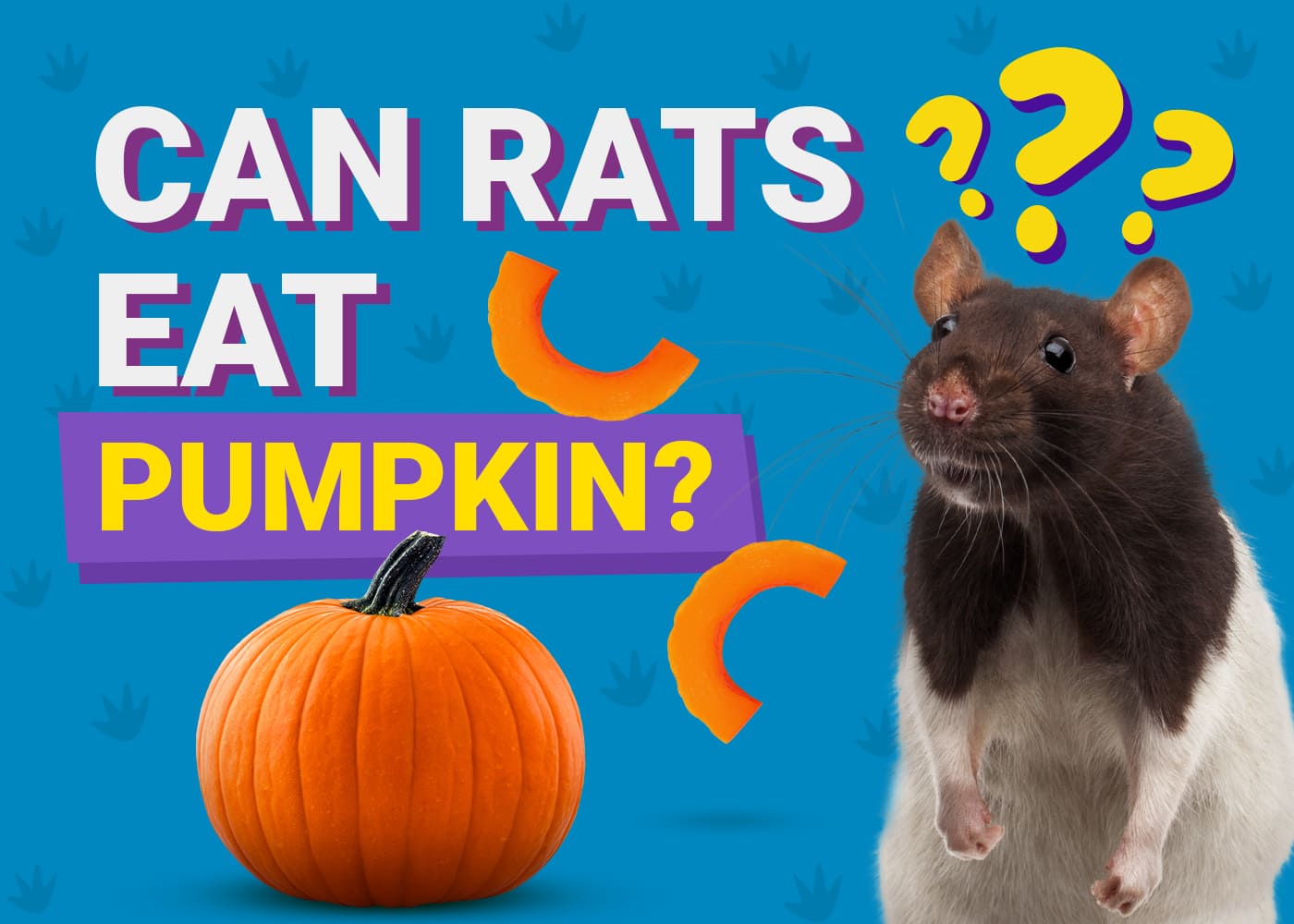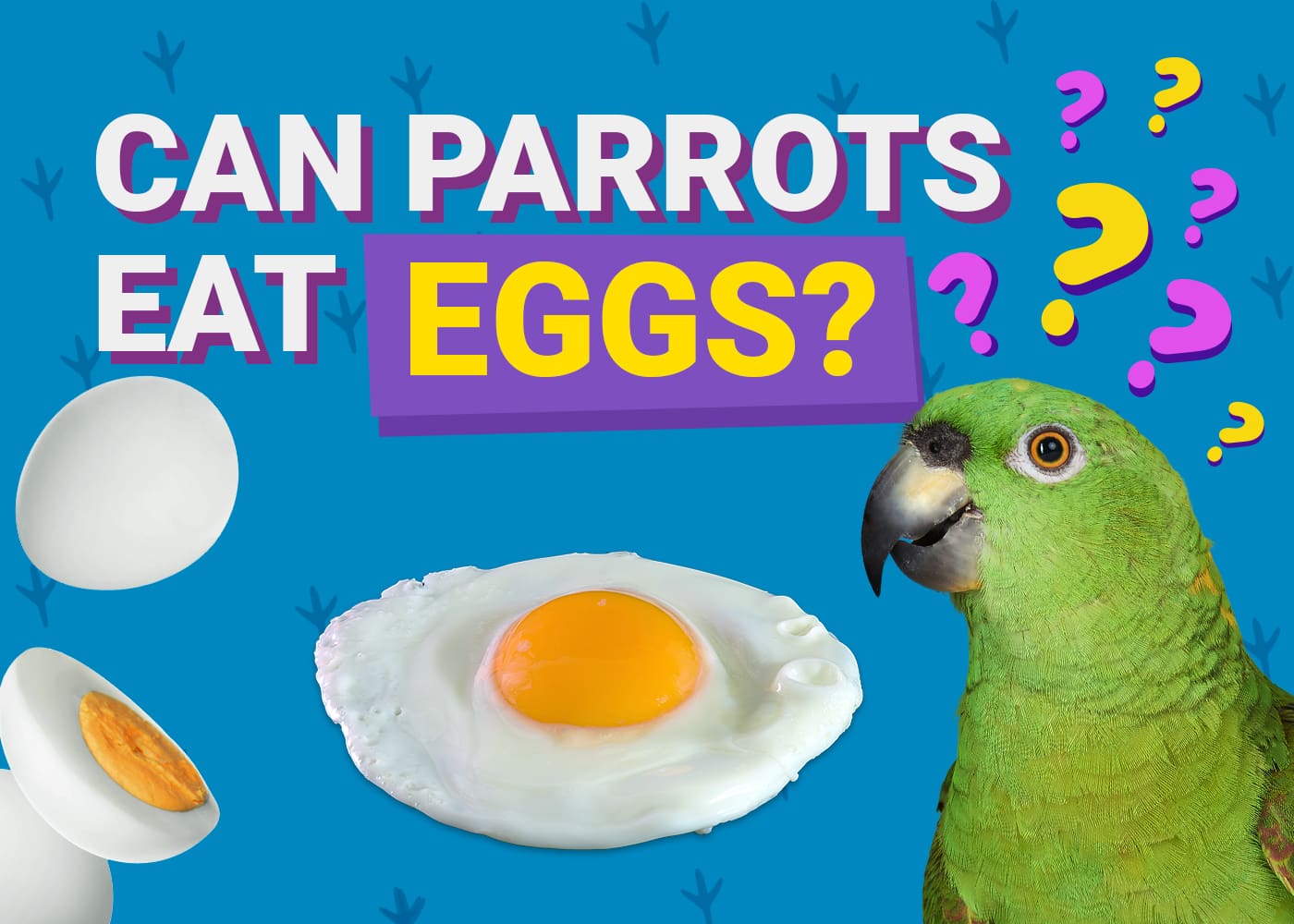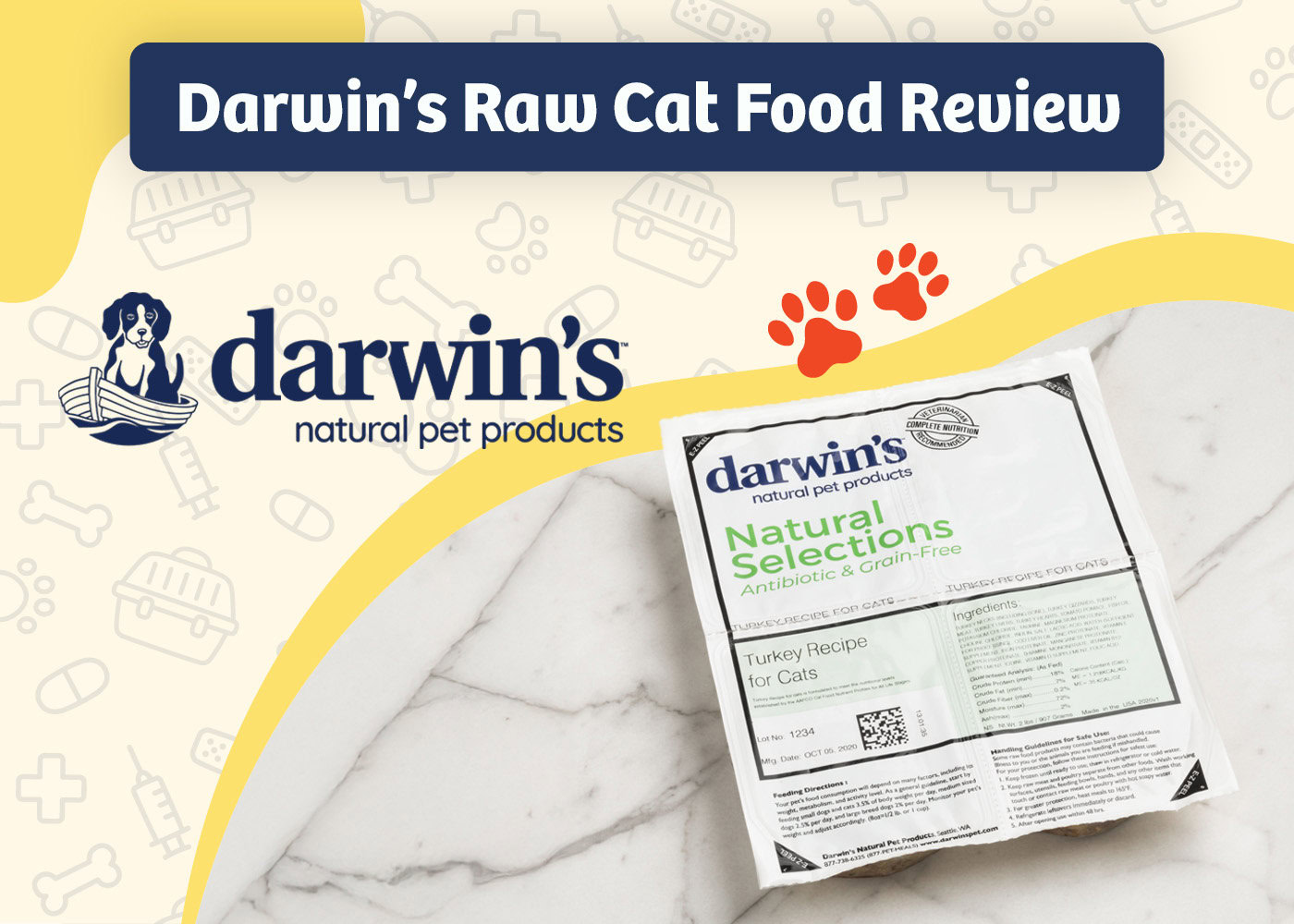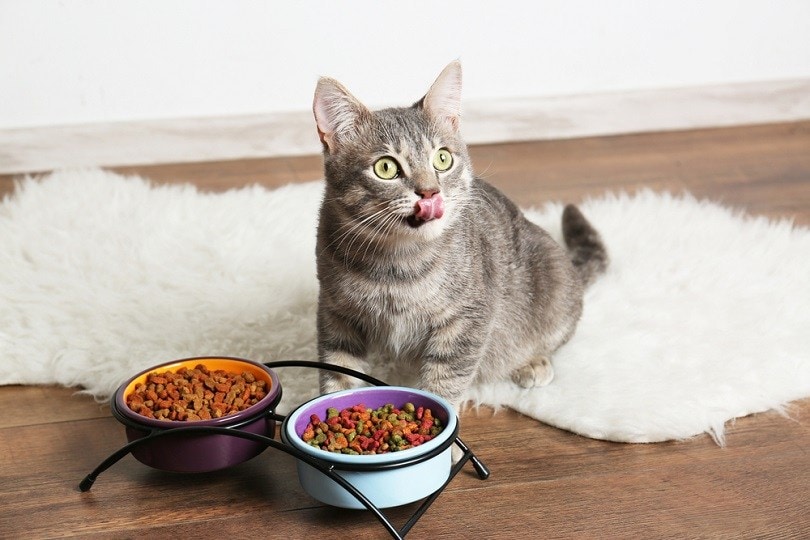VET APPROVED

The information is current and up-to-date in accordance with the latest veterinarian research.
Learn more »Click to Skip Ahead
Pet rats are often inaccurately perceived as easy to care for pets because they are not picky about their food, and in the wild, they will eat almost anything that they can fit into their mouths! Of course, just because they will eat a variety of food, that doesn’t mean they should. Since you want your pet rat to get the best nutrition that they possibly can, it’s important to be aware of the foods that they should and shouldn’t eat.
But what about pumpkin? Can rats eat pumpkin? The answer is yes, pumpkin is perfectly safe to feed rats in moderation. The seeds are also an acceptable snack for your rat, but again, moderation is key. In this article, we look at the do’s and don’ts of feeding pumpkin to your pet rat and the potential health benefits. Let’s dive in!
Is Pumpkin Good for Pet Rats?
Both pumpkin (in an extract form) and pumpkin seeds (in various forms) have been extensively researched on rats. However, most of these studies are aimed at investigating the potential benefits of pumpkin or its seeds in managing or treating a specific ailment or disease, which is first induced in the rats involved in the study.
A pet rat’s life is definitely not comparable to that of a laboratory rat. Granted, they are the same species, but a pet rat isn’t intentionally exposed to a specific ailment to then see if their condition can be improved or managed better by offering them pumpkin.
Nonetheless, research has demonstrated that both pumpkin and its seeds are indeed safe for pet rats.
In terms of its nutritional value, most of a pumpkin is water, followed by carbohydrates. A portion of these carbohydrates are in the form of fiber, which pumpkin is often touted for. However, it is worth noting that only 0.5% of pumpkin is actually fiber.1 As such, you definitely shouldn’t rely on pumpkin to meet your pet’s fiber needs (alternatives such as hay are much better for this purpose).
While pumpkins are not high in calories and have potential benefits for rats, it’s still important to moderate their intake because they are small animals and overfeeding is easy. Vegetables are definitely recommended in a rat’s diet, but they don’t take precedence over food items such as pellets as a dietary staple.
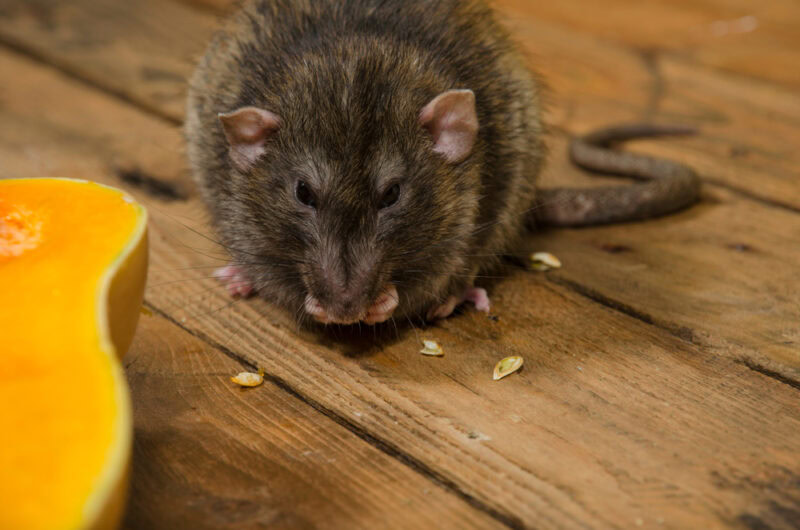
What About Pumpkin Seeds?
Pumpkin seeds are also a great addition to your rat’s diet, but again, moderation is key because they are fairly high in fat, and too many can cause obesity. The best form for serving pumpkin seeds to your pet is roasted, comprising around 5% of their diet at most.2
How Often Can Rats Eat Pumpkin?
It’s best to feed pumpkin to your rat only in moderation. We recommend no more than two or three times per week. The ideal serving size depends on the age and size of your rat. An acceptable option is a 1-inch chunk or one roasted seed. Cooked pumpkin—steamed or boiled—is best, but raw pumpkin is fine too.
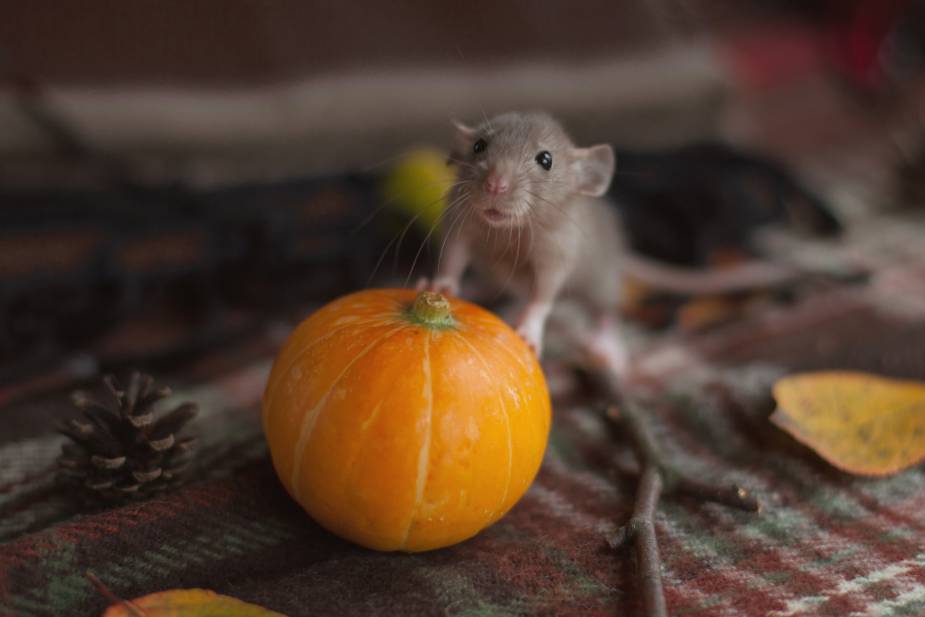
Pumpkin Alternatives
Some rats quickly develop a preference for certain foods, and as a result, may not be too fond of pumpkin. But don’t worry, there are various healthy alternatives to give your rat, and you can try a few to see which your rat prefers.
- Broccoli
- Carrots
- Potato (cooked)
- Cabbage
- Peas
- Fresh corn
Rats can also eat a variety of fruits as treats, in moderation, including apples, pears, bananas, grapes, and berries.
What Foods Should You Avoid Feeding Your Rat?
While pumpkin and many other vegetables and fruits are non-toxic and even healthy for rats, there are a few foods to avoid feeding them, including:
- Avocado
- Chocolate
- Raw potatoes
- Uncooked beans
- Cheese
- Alcohol (includes raw dough)
- Sugar
- Raw peanuts
- High-fat processed foods
 Final Thoughts
Final Thoughts
Pumpkin is a delicious, safe, and non-toxic food for rats, and when given in moderation, it may have positive health effects too. The seeds are also great snacks for them, although they do contain high amounts of fat and should be given sparingly.
Giving your rat a small piece of pumpkin and a single pumpkin seed two or three times a week is usually acceptable. However, it is always best to consult your veterinarian for a nutritional plan made specifically for your pet.
Related Reads:
